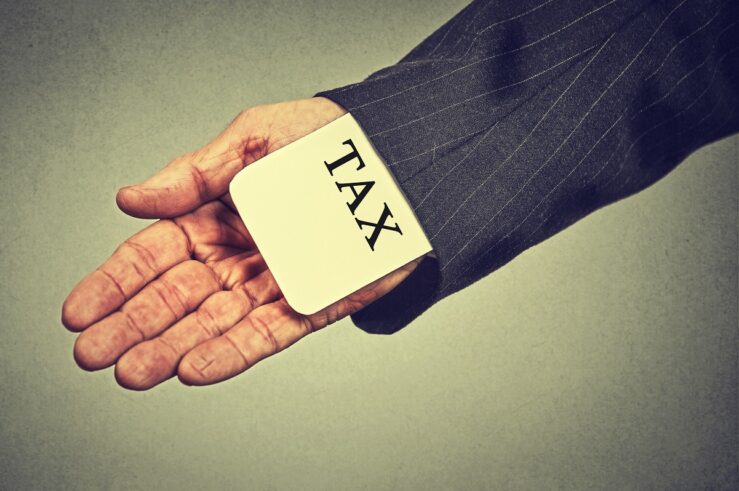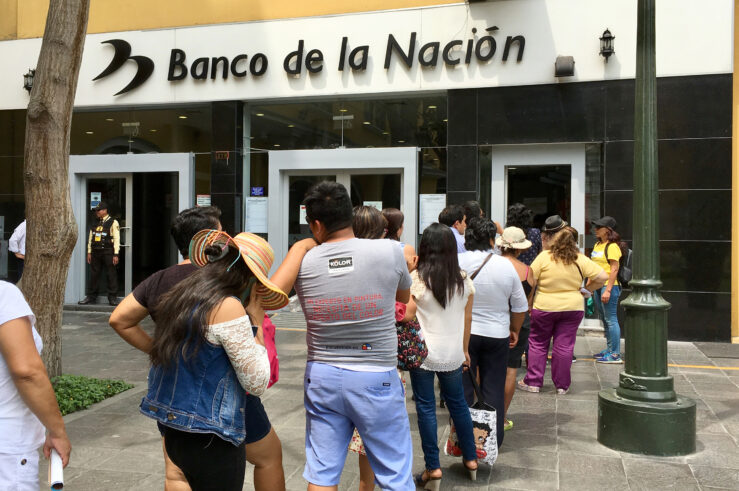Showing archive for: “Financial Regulation”
CFPB’s Overdraft Fee Price Controls Would Be Counterproductive
The Consumer Financial Protection Bureau (CFPB) announced a final rule last week to impose price controls and onerous disclosure rules on overdraft fees charged by those banks and credit unions with assets of more than $10 billion. At first glance, such interventions might seem like a win for consumers, particularly those with low incomes who ... CFPB’s Overdraft Fee Price Controls Would Be Counterproductive
Chris DeMuth Jr: Perspectives on Antitrust from Financial Markets and Venture Capital
How much do you take potential antitrust concerns into account when evaluating investments or mergers and acquisitions? Has this changed over time? Antitrust is a big part of M&A and the work I do in analyzing deals at Rangeley Capital. It has always been important, but the importance has grown with this administration’s activist approach. ... Chris DeMuth Jr: Perspectives on Antitrust from Financial Markets and Venture Capital
Capital Confusion at the New York Times
In a recent guest essay for The New York Times, Aaron Klein of the Brookings Institution claims that the merger between Capital One and Discover would “keep intact the broken and predatory system in which credit card companies profit handsomely by rewarding our richest Americans and advantaging the biggest corporations.” That’s quite an indictment! Fortunately, Klein also ... Capital Confusion at the New York Times
The Biden Executive Order on AI: A Recipe for Anticompetitive Overregulation
The Biden administration’s Oct. 30 “Executive Order on the Safe, Secure, and Trustworthy Development and Use of Artificial Intelligence” proposes to “govern… the development and use of AI safely and responsibly” by “advancing a coordinated, Federal Government-wide approach to doing so.” (Emphasis added.) This “all-of-government approach,” which echoes the all-of-government approach of the 2021 “Executive ... The Biden Executive Order on AI: A Recipe for Anticompetitive Overregulation
The Effect of VAT Withholding Requirements in Latin America
Innovations in payment systems are rapidly transforming the world economy. While Bitcoin, Ethereum, and other decentralized blockchain-based systems tend to garner much of the press (good and bad), centralized peer-to-peer (P2P) payment systems are far more common. (Note that I use the term P2P here in its original sense to mean all peer-to-peer transactions, which ... The Effect of VAT Withholding Requirements in Latin America
The FT Misunderstands the Economics of Credit-Card Markets
In a recent piece for the Financial Times, Brendan Greeley argues that the misnamed Credit Card Competition Act would reduce inflation. In it, Greeley recycles numerous myths about the nature of credit-card markets that have long been rebutted by serious economic research. Both theory and ample evidence from the United States and other countries shows ... The FT Misunderstands the Economics of Credit-Card Markets
Does ‘Open Finance’ Promote Competition or Facilitate Free Riding?
Financial technology, or so-called “fintech,” is disrupting the financial sector, and that’s a good thing. Fintech services are making finance more digital and more user-friendly. This, in turn, has led to reduced transactions costs and increased levels of competition, innovation, and financial inclusion. Alas, the emergence of fintech has also been accompanied by a rising ... Does ‘Open Finance’ Promote Competition or Facilitate Free Riding?
The Paradoxical Perils of Mandatory ‘Competition’ in Merchant Routing of Credit-Card Transactions
Sen. Richard Durbin (D-Ill.) earlier this month introduced legislation that aims to manufacture competition in the routing of credit-card transactions. If enacted, the measure would require that merchants be able to choose from at least two networks when processing most credit-card transactions. While this would result in competition over routing, it would harm other forms ... The Paradoxical Perils of Mandatory ‘Competition’ in Merchant Routing of Credit-Card Transactions
Four Horsemen of the Bureaucratic Apocalypse Come for AI
Four prominent horsemen of the Biden administration’s bureaucratic apocalypse—the Federal Trade Commission (FTC), U.S. Justice Department (DOJ) Civil Rights Division (DOJ), Consumer Financial Protection Bureau (CFPB), and the U.S. Equal Employment Opportunity Commission (EEOC)—came together April 25 to issue a joint statement pledging vigorous enforcement against illegal activity perpetrated through the use of artificial intelligence ... Four Horsemen of the Bureaucratic Apocalypse Come for AI
After the FTX Crash, What’s Next for Crypto?
For many observers, the collapse of the crypto exchange FTX understandably raises questions about the future of the crypto economy, or even of public blockchains as a technology. The topic is high on the agenda of the U.S. Congress this week, with the House Financial Services Committee set for a Dec. 13 hearing with FTX ... After the FTX Crash, What’s Next for Crypto?
Is Pix Really the End of Credit Cards?
In late August, Roberto Campos Neto, the head of Brazil’s central bank, is reported to have said about Pix, the bank’s two-year-old real-time-payments (RTP) system, that it “eliminates the need to have a credit card. I think that credit cards will cease to exist at some point soon.” Wow! Sounds amazing. A new system that ... Is Pix Really the End of Credit Cards?
Privacy, Crypto, and EU Financial Surveillance
European Union lawmakers appear close to finalizing a number of legislative proposals that aim to reform the EU’s financial-regulation framework in response to the rise of cryptocurrencies. Prominent within the package are new anti-money laundering and “countering the financing of terrorism” rules (AML/CFT), including an extension of the so-called “travel rule.” The travel rule, which ... Privacy, Crypto, and EU Financial Surveillance














